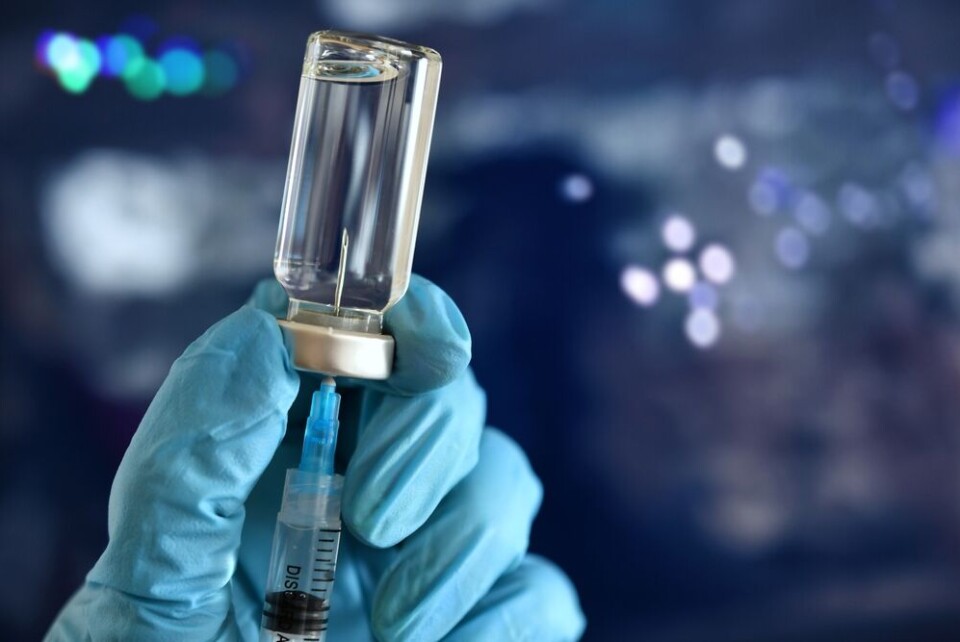-
White storks make strong return in France via nest ‘platforms’ and clipped wings
The Ligue pour la Protection des Oiseaux shares the conservation challenges in saving these birds from extinction
-
Hosting scheme in south-west France lets newcomers sample lifestyle
Households in nine Dordogne communes volunteer under Mes Nouveaux Voisins scheme
-
French boulangeries demand right for staff to work on May 1 so they can open
Artisan bakery owners can work but employees cannot, while certain industrial bakeries are allowed to remain open with workers
Alert over rise in number of meningitis cases in France post Covid
Experts are calling for an updated vaccination strategy

France is experiencing an "unprecedented rebound" in meningitis cases.
While 298 cases were recorded between January and September 2019, 421 cases have already been recorded between January and September 2023.
This represents a 40% increase "even though we have not reached the winter peak," the Institut Pasteur, a renowned centre for biomedical research, states. It is calling for a change in vaccination strategy to include adolescents who are most at risk.
The end of the health measures put in place for Covid-19 is cited as one cause of this resurgence in a study published on November 14.
Reason for the resurgence
During the Covid-19 pandemic, barrier measures such as wearing a mask and social physical distancing had a positive effect on the number of respiratory infections – meningococcal meningitis infections dropped by more than 75% in 2020 and 2021.
However when protective measures eased at the end of the pandemic “the meningitis bacteria quickly returned, given a population which had not been in contact with them for a long time,” said Muhamed-Kheir Taha, co-lead author of the study and head of the Invasive Bacterial Infections Unit and the National Reference Centre for Meningococci at the Institut Pasteur.
Alongside a decrease in general immunity as a result of a lack of exposure to the bacteria, there was also a 20% drop in vaccinations against meningococcal C during the first lockdown.
Read also:What is known about the new Covid subvariant spreading through France?
Next steps to be taken
Having reviewed the database of the National Reference Center for Meningococci which lists all cases of meningococcal meningitis in France since 1980, the Institut Pasteur is calling for the vaccine to be extended to adolescents, who are now particularly affected.
While the majority of new reported cases are linked to groups of meningococci that were less common before the pandemic, there is a new strain of meningitis which is most commonly seen among 16-24 year olds.
The results of this study “should help adapt the vaccination strategy for this deadly disease”, the Institut Pasteur said, with its researchers currently in discussions with the French National Authority for Health around extending the vaccine targeting meningococcal groups A, C, Y and W to teenagers.
Four vaccination groups
Currently in France, vaccination against group C meningococcal disease is mandatory for all infants born since January 1, 2018, while vaccination against group B is only recommended.
Unlike some countries such as the United Kingdom, there is no recommendation for the general population against groups Y and W. However, since the end of the Covid-19 pandemic, it is these latter strains that are responsible for most cases of meningitis.
Read also: Flu vaccination campaign opens in France: how does it work?
Cause for concern
According to the Insitut Pasteur, this resurgence of meningitis could well increase in the coming months with the seasonal flu epidemic. “The influenza virus creates favourable conditions for the development of meningococcal bacteria,” warns the institute.
In addition, large gatherings are conducive to the contamination and the spread of meningococcal meningitis in particular.
"Let us not forget that without treatment, bacterial meningitis is almost 100% fatal and even if properly treated, the mortality rate remains 10%.
“This underscores the importance of vaccine prevention,” Mr Taha concludes.
Read also
Long Covid sufferers in France want official recognition by doctors
MAP: several areas in France reach epidemic level for bronchiolitis
























